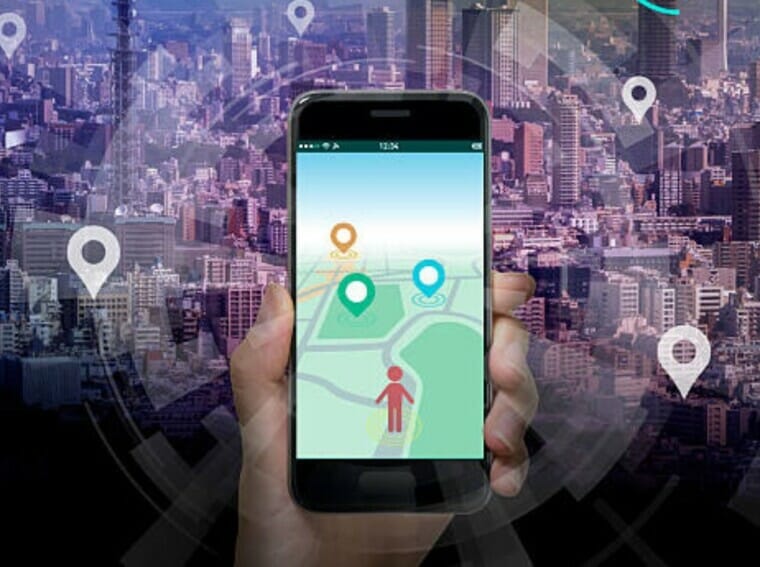Location tracking is a growing reality in today’s digital world, and it can be used for both positive and negative purposes. Nowadays, there are many methods how to track someone location with phone number. Unfortunately, intruders can take advantage of this technology to track your location without your knowledge or permission. This type of surveillance has serious implications for privacy and security and the potential to expose sensitive information. This article will explore how intruders can track your location without your knowledge and what steps you can take to protect yourself.
What is Phone Tracking?
Phone tracking is a method of locating someone using their mobile device. This technology uses a person’s cell phone signal to triangulate its position in real-time. Calculating the differences in signal strength between different towers can determine the exact location of a person within feet. It can also be used to monitor a person’s movements over time.
How Do Intruders Track Your Phone?
Intruders can track your phone in several ways. The most common method is through a GPS tracking app or service. GPS tracking apps are available for free and can be installed on a person’s device without their knowledge or consent. Once installed, the app will track the person’s movements and send that data to a third-party server.
Another way that intruders can track your phone is by installing malicious software, such as a keylogger or spyware, onto the device. These applications monitor and record user activity on the device and transmit it to an attacker’s remote server. Finally, intruders can also use wireless networks to gain access to your device and monitor its activities without your knowledge.
Why Do They Need Your Location?
Location data can be used for a variety of purposes, including targeted advertising, tracking user activity, and even for malicious activities such as stalking or fraud. By knowing a person’s location, an attacker can gain insight into their lifestyle and habits, which can then be used for more sophisticated attacks.

For example, if an intruder finds out about a user’s daily commute, they could use this information to try and hijack the user’s accounts or intercept messages. Furthermore, intruders may also be able to exploit location data for financial gain, such as by selling it on the dark web.
How Can You Protect Your Location?
The first step to protecting your location is understanding how it’s being tracked. Many apps and websites use a variety of methods to capture and store your location data, such as GPS, Wi-Fi networks, or IP addresses. It’s important to make sure you know which services are collecting this information and how they’re using it.
The next step is to limit the amount of information you’re sharing. You can do this by disabling location tracking on your device or app settings or by using a VPN that masks your IP address. Additionally, some apps allow users to set up their own privacy settings, which can be used to customize how much data is being collected and shared.
Finally, it’s important to take steps to protect your location data. This includes avoiding sharing too much information on social media, using strong passwords for accounts that contain sensitive information, and limiting the amount of personal data you share with companies or websites. It’s also wise to be mindful of the types of apps you’re using, as some can be used to track your location without your knowledge. By taking the necessary precautions, you can ensure that your location data remains secure and private.
What Are The Dangers of Not Protecting Data?
Not protecting your location data can lead to a variety of risks, including potential identity theft or fraud. An attacker can use your location data to gain access to accounts and sensitive information, such as financial details. In addition, if someone is able to track your movements using your location data, they may be able to target you for physical harm or stalking.

It is also important to remember that location data can be used for more than just identity theft and fraud. Companies, governments, and other organizations may use your location data to target ads or manipulate public opinion. In addition, law enforcement may access your location data if they suspect illegal activity.
Finally, it is important to remember that location data is not always secure. Hackers may be able to access this information without your knowledge, which can lead to serious security breaches. To protect yourself from these threats, it is important to take steps such as using strong passwords and encryption and regularly monitoring your digital accounts for suspicious activity.
Overall, understanding the risks associated with location data is essential for protecting your privacy. By taking the necessary precautions, you can ensure that your information remains safe and secure.
Conclusion
Location data can be a powerful tool for businesses and individuals alike, but with great power comes great responsibility. By understanding the potential risks associated with location data and taking the necessary precautions to protect your information, you can make sure that your data remains secure and your privacy is respected.
Thank you for taking the time to read this article!


